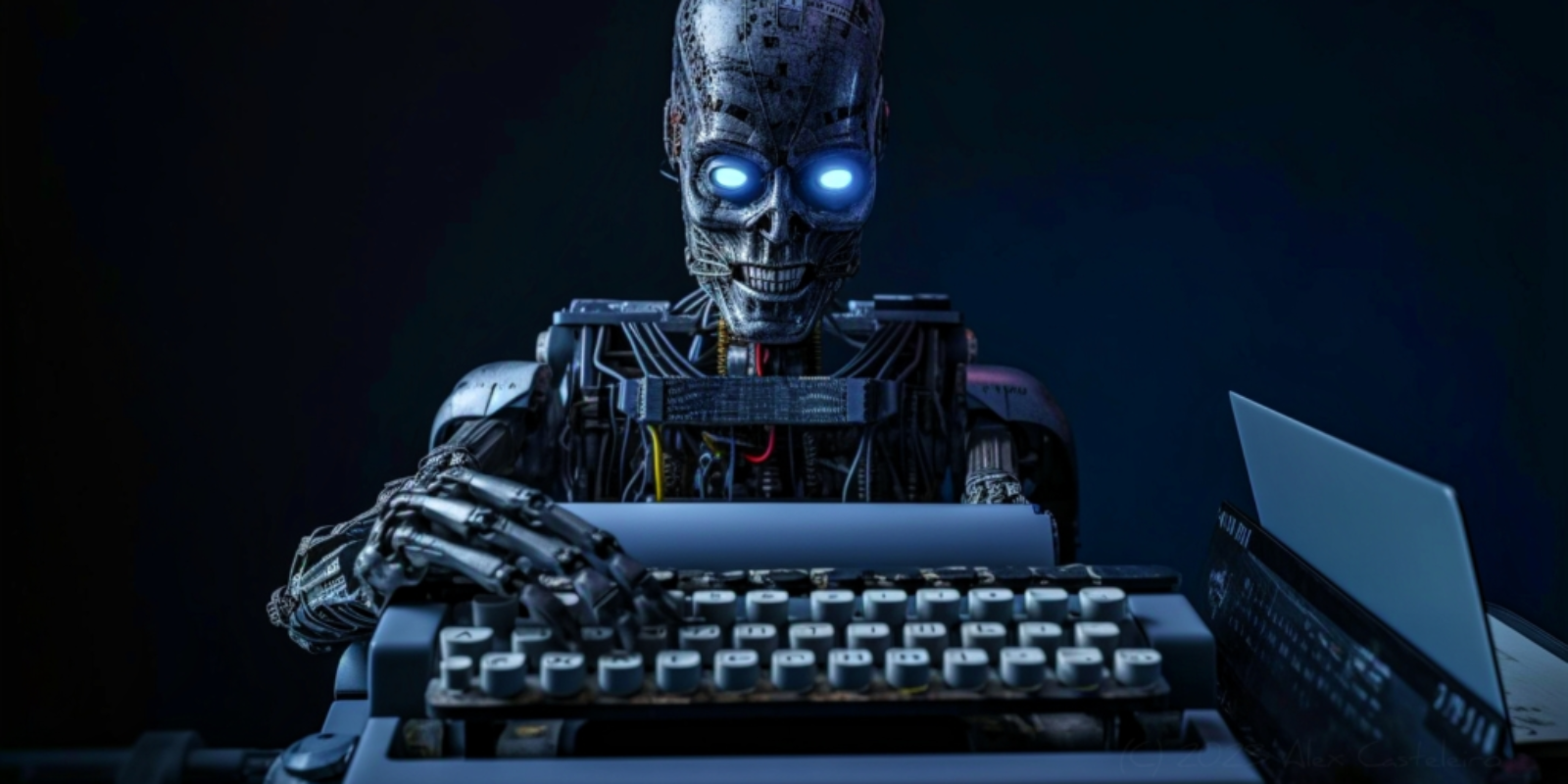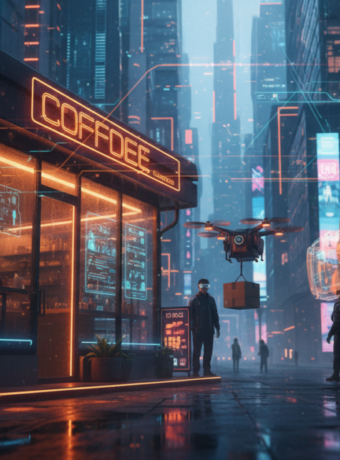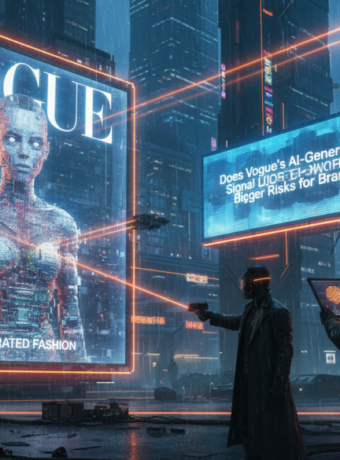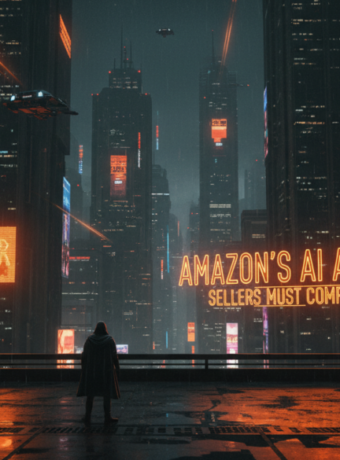Science Fiction Novella Written Entirely by AI: Introducing “Zero” by Alfred Ines
1. Introduction
In a groundbreaking literary experiment, author Alfred Ines has written Zero, a thrilling science fiction novella composed almost entirely by the advanced AI language model GPT-4. This is the first in a series of three planned novellas for the Zero series.
2. The Concept of “Zero”
2.1 The Story and Setting
Zero tells the gripping story of a futuristic world where two factions, the Skybourne and Deepborn, are locked in a cosmic struggle for the enigmatic Planet Zero. The novella’s characters, plot, and most of the story were developed by GPT-4 with minimal guidance from the author. It was written over the course of one day. The cover was generated by Open AI’s image generator, DALL-E 2.
2.2 The Role of GPT-4
In a recent interview, the author revealed that the project began as an experiment to explore the potential of GPT-4 in crafting a compelling science fiction story. “I was fascinated by the idea of finding out what an AI can do on its own with minimal guidance. The result is a passable story. It’s certainly not equal to what a talented writer can do. But at the same time, it’s probably better than a lot of what’s out there.”

3. The Writing Process
3.1 Experimenting with AI
Previously, the author published a successful legal thriller called The Law of the Sea under the pen name Dave Gerard. The Law of the Sea is a legal thriller that has sold several thousand copies and has a 4.4/5 rating on nearly 1,000 Amazon reviews. In contrast to Zero, The Law of the Sea was written the old-fashioned way, without the assistance of AI.
3.2 Comparing to Traditional Writing
Alfred Ines looks forward to exploring the boundaries of writing with AI. “I expect that, at least right now, AI will be a collaborative tool. Working with it may feel more like sculpting. The next thing I’m looking to try with AI is going to be a novel that’s as good as a talented author might write, but written with the ease of having AI doing the heavy lifting. I’m excited to see how it works out.”
4. Alfred Ines’ Previous Works
4.1 The Law of the Sea
Before venturing into the world of AI-assisted writing, Ines authored the successful legal thriller The Law of the Sea. The novel has received high praise from both readers and critics, demonstrating Ines’ ability to craft engaging stories without the assistance of AI technology.
5. The Future of AI-Assisted Writing
5.1 Collaboration and Creativity
As AI technology continues to advance, it’s likely that we’ll see even more authors experimenting with AI-assisted writing. This could lead to entirely new forms of collaboration and creativity, as authors work together with AI to develop innovative and captivating stories. The potential for AI to enhance the creative process is immense, and it may be able to help authors push the boundaries of storytelling in exciting new directions.
6. Availability and Reception of Zero
Zero is now available as a Kindle eBook on Amazon, allowing readers to experience this unique collaboration between Alfred Ines and GPT-4 for themselves. While it’s still too early to gauge the overall reception of the novella, its innovative approach to storytelling has already generated a significant amount of interest and curiosity within the literary world.
7. The Impact of AI-Assisted Writing on the Publishing Industry
As AI-assisted writing becomes more prevalent, it has the potential to significantly impact the publishing industry. While some may view AI-generated content as a threat to traditional authorship, it’s important to recognize the potential for collaboration between humans and AI in creating compelling stories.
7.1 New Creative Opportunities
AI-assisted writing can open up new creative opportunities for authors by providing them with fresh ideas and perspectives. Additionally, AI can help authors overcome writer’s block, edit their work more effectively, and even identify potential gaps in their stories.
7.2 More Accessible Writing Tools
As AI language models become more sophisticated, they are likely to be incorporated into a wider range of writing tools, making the process of writing more accessible to aspiring authors. This could potentially democratize the world of literature, allowing more voices to be heard and fostering greater diversity in storytelling.

8. Ethical Considerations of AI-Assisted Writing
As AI-assisted writing becomes more commonplace, it’s crucial to address the ethical considerations that arise with the use of AI in literature.
8.1 Authorship and Attribution
One of the primary ethical concerns regarding AI-assisted writing is the question of authorship and attribution. As AI-generated content becomes more sophisticated, it may become increasingly difficult to differentiate between human-authored and AI-authored works. Establishing clear guidelines for crediting AI contributions in literature will be essential for maintaining transparency and integrity in the publishing world.
8.2 Potential Misuse
There is also the potential for AI-assisted writing to be misused, such as generating disinformation or creating deepfake text. As AI continues to advance, it’s important for society to develop safeguards to prevent and mitigate the negative effects of AI-generated content.
9. The Future of AI and Literature
The future of AI and literature is likely to be a complex and ever-evolving landscape. As AI language models become more advanced and capable of generating increasingly sophisticated content, the potential for collaboration between human authors and AI will continue to grow. This could lead to the development of entirely new literary genres and styles, as well as an expansion of the types of stories that can be told.
At the same time, it’s crucial for authors, publishers, and readers to remain vigilant about the ethical considerations surrounding AI-assisted writing. By fostering a healthy dialogue about the role of AI in literature, we can ensure that this emerging technology is used responsibly and in a way that enriches the world of storytelling rather than detracting from it.
10. Conclusion
In summary, Zero represents a fascinating exploration of the potential of AI-assisted writing. While it may not rival the works of talented human authors just yet, the novella demonstrates that AI-generated content has the potential to be both engaging and thought-provoking. As technology continues to advance, it’s likely that the relationship between authors and AI will continue to evolve, opening up new possibilities for creativity and collaboration in the world of literature.
11. FAQs
Q1: What is the story of “Zero”?
A1: Zero is a science fiction novella set in a futuristic world where two factions, the Skybourne and Deepborn, are in a cosmic struggle for the enigmatic Planet Zero.
Q2: How was “Zero” written?
A2: Zero was written almost entirely by the advanced AI language model GPT-4, with minimal guidance from author Alfred Ines.
Q3: What is the role of GPT-4 in the creation of “Zero”?
A3: GPT-4 played a significant role in developing the novella’s characters, plot, and most of the story, with the author providing minimal guidance.
Q4: What is Alfred Ines’ previous work?
A4: Before writing Zero, Alfred Ines published a successful legal thriller called The Law of the Sea under the pen name Dave Gerard.
Q5: What does the future hold for AI-assisted writing?
A5: The future of AI-assisted writing will likely involve more collaboration and creativity between authors and AI, pushing the boundaries of storytelling and potentially leading to innovative new forms of literature.



